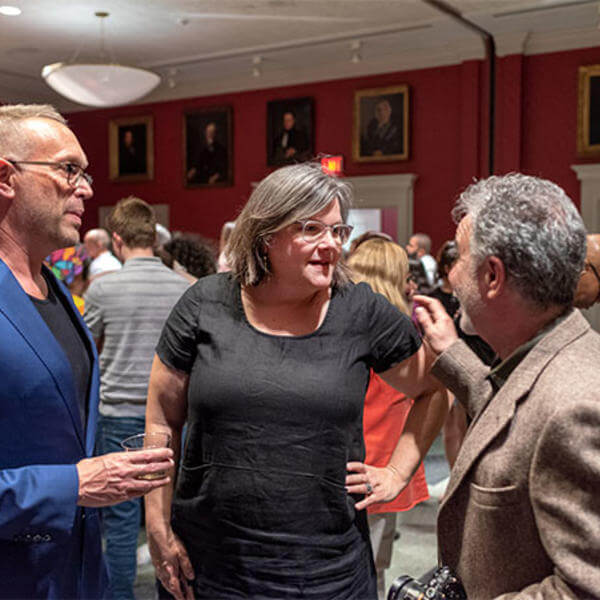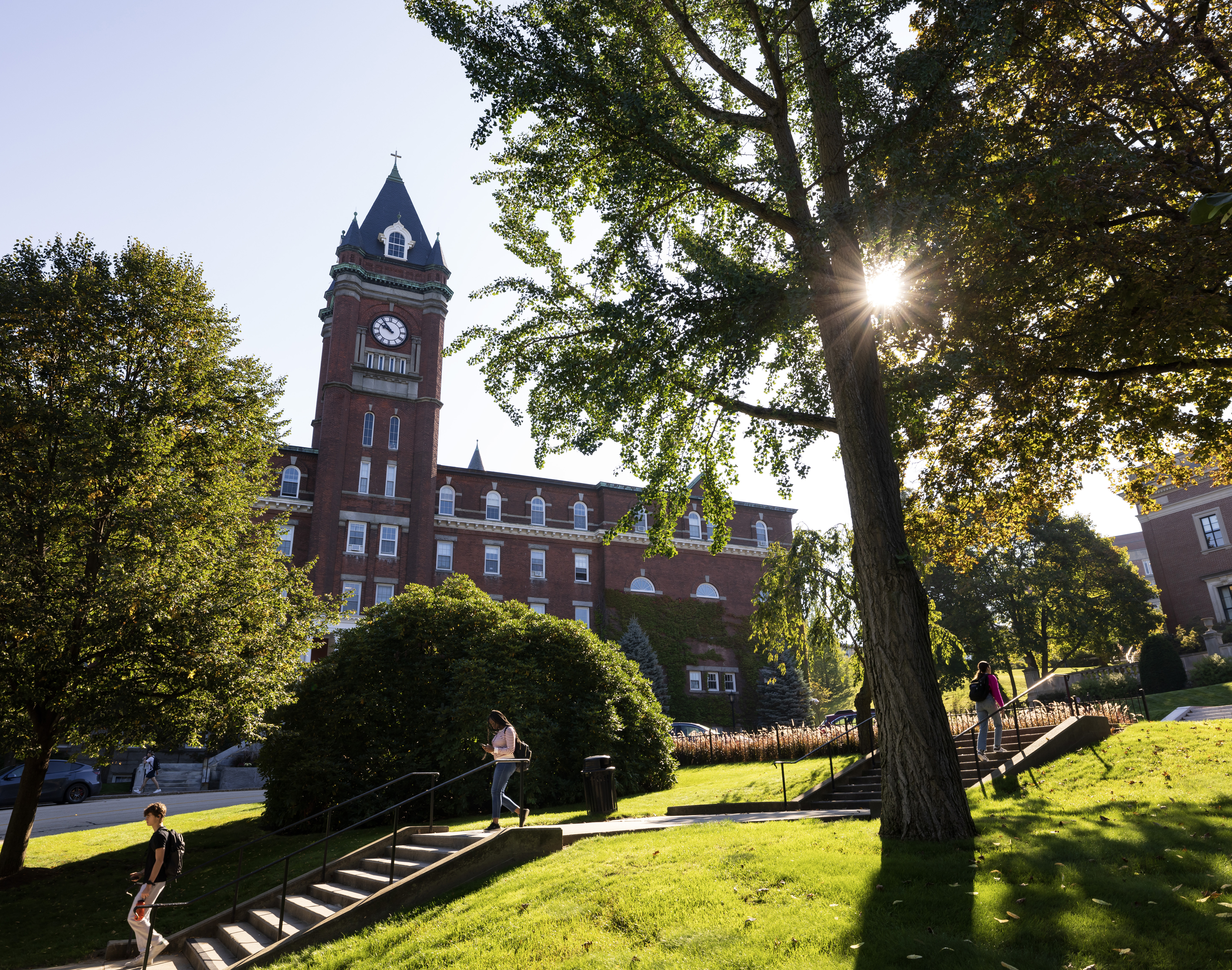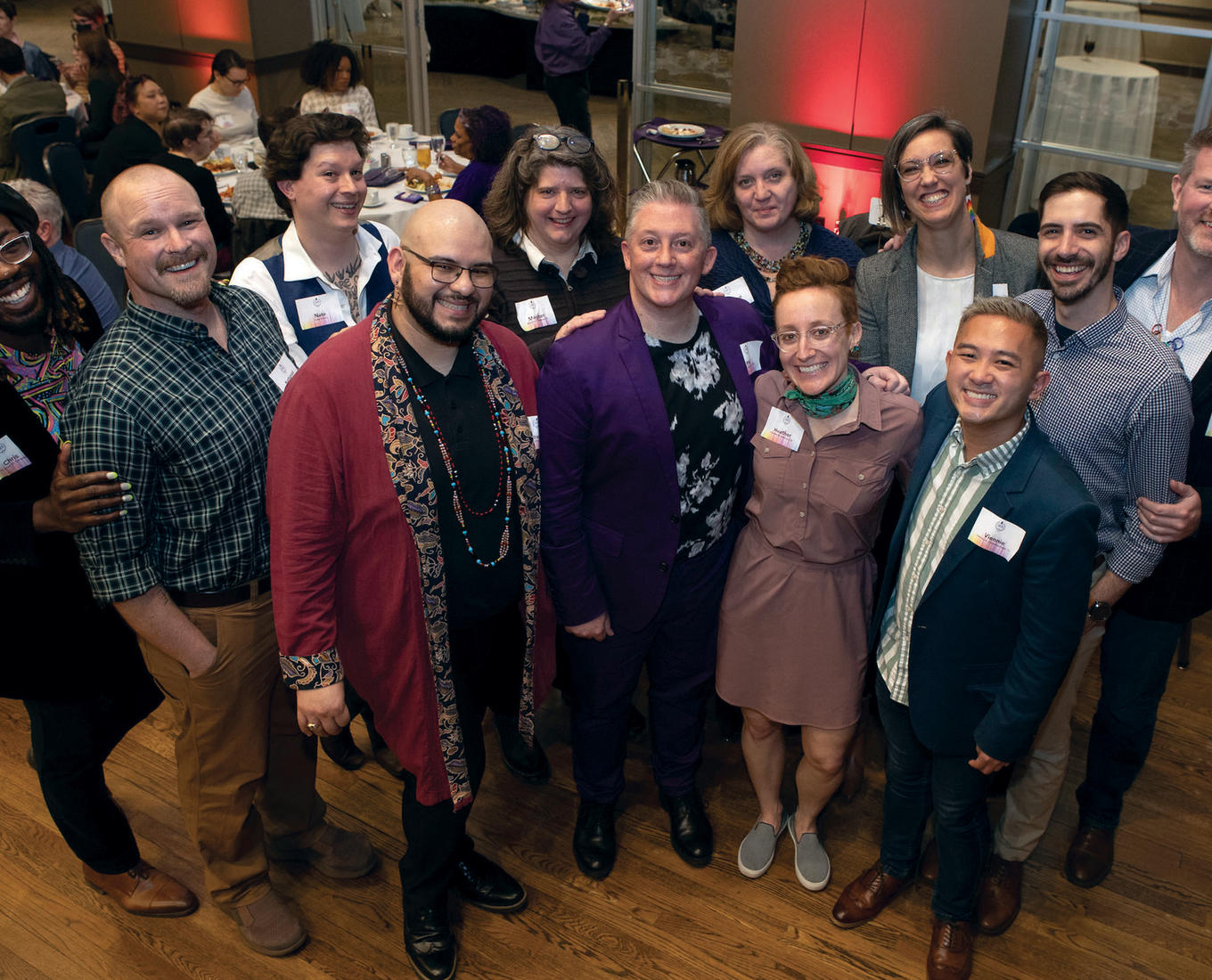On April 25, 2019, the Worcester Historical Museum was filled with emotion — sorrow, anger, joy — as hundreds explored the museum's newest exhibition, "LGBTQ+ Worcester — For the Record," a chronicling of images, histories, voices and experiences of Worcester's LGBTQ+ community over the last 50 years.
The exhibition, timed to the 50th anniversary of New York’s Stonewall uprising and the advent of the modern gay liberation movement, showcases the scattered documentation of Worcester's LGBTQ+ experience, which is quickly growing due in large part to the work of College of the Holy Cross' Stephanie Yuhl, professor of history. Supported by a three-year Scholarship in Action grant, Yuhl is working as part of a team of scholars to develop a physical and digital historical archive, oral history project and artifact collection of LGBTQ+-related materials in Worcester County.
While Worcester's LGBTQ+ community has claimed space in the city for decades, their history has long been overlooked, a common occurrence for marginalized, hidden or oppressed communities, explains Yuhl. Through partnerships with the museum and various community representatives, Yuhl's Scholarship in Action grant project, titled "From Margin to Center," aims to make this rich history both visible and accessible — and, in doing so, showcase its value.
For Yuhl, this is social justice history work.
"The idea was to build a collection because if you start collecting materials, you start validating that history and if you have a history, you're not easily erased," she shares. "I always say, and said at the opening of the exhibition, that archives are a form of power."
"Shared authority"
In order to build this collection, Yuhl and her community partner William Wallace, executive director of the Worcester Historical Museum, established an extensive network of partners in Worcester. The team of collaborators includes professors Robert Tobin from Clark University and Joseph Cullon from Worcester Polytechnic Institute (WPI), both co-curators of the exhibition and larger archive project, along with a community advisory board made up of organizations including Worcester Pride, the Boys and Girls Club, and UMass Medical School. These many touchpoints helped guide the collection process and reach the variety of people who self-identify as members of Worcester's LGBTQ+ community.
"This has required a lot of social energy, a live network, a lot of building up relationships and trust before people are willing to share their stories," says Yuhl. "This is especially true because we're talking about a population that has generally been disparaged. You don't want to only be extractive."
This grassroots effort — in partnership with the community, for the community — is vital to the success of the project.
"One of the central tenets of this type of public history work," explains Yuhl, "is shared authority. It's not just a scholarly expert that comes in and says, 'This is the story,' but rather serves to ask questions and be a platform for communities to tell their own histories."
Through this project, Yuhl has been able to marry her scholarly interests in public history and in gender and sexuality in the U.S. context with the needs of the local community, making it a perfect fit for the Scholarship in Action initiative. The initiative's funding, sponsored by $800,000 awarded to the College from The Andrew W. Mellon Foundation, aims to support sustainable, community-based faculty research projects in Worcester over the next five years through a series of grants.
Yuhl received one of the two inaugural Scholarship in Action grants, alongside Susan Rogers, professor emerita of anthropology, who is studying refugee resettlement in Worcester. A new crop of grants will be awarded in the coming months to support more community-based faculty research projects, which also create a range of experiential, applied learning opportunities for students.


